Our 21st-century lifestyle has left many of us with smaller gardens, where every inch of outdoor space is precious. Through the use of climbers and wall shrubs, we can expand our planting opportunity, giving us a wealth of form, color and texture right through the gardening year.
Besides being decorative, climbers have a multitude of uses in the small garden. They soften hard edges, camouflage unsightly structures and even distract the eye from unwanted features outside the garden.
Below are some ways to use climbers for both decorative and utilitarian purposes in the garden.
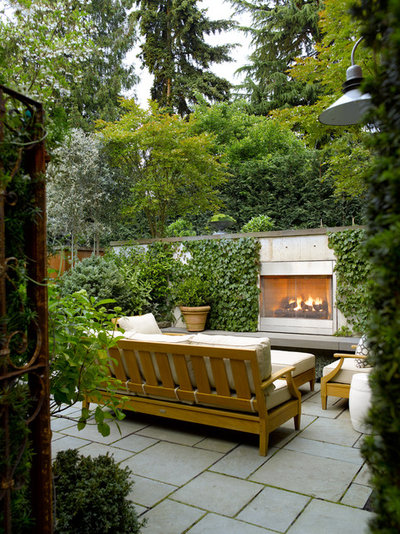
Scot Eckley, Inc.
Soften Imposing HardscapesThe boundaries of small, enclosed spaces can be overpowering, and through the use of plants we can soften and even decorate garden walls in the same way we use wallpaper in our homes.
Here, evergreen ivy covers the wall and surrounds the outdoor fireplace, but is kept carefully under control. Create an even more decorative use of ivy by planting different varieties together, allowing them to grow and interweave for a kaleidoscope of colors.
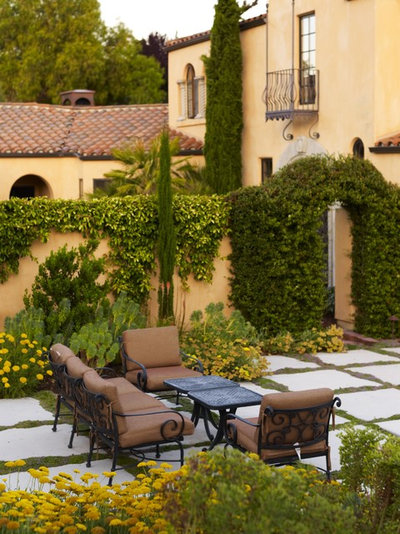
Jeffrey Gordon Smith Landscape Architecture
This garden exemplifies a good use of the two main groups of plants that can be used to cover and decorate walls. Wall shrubs, such as the Pyracantha forming the dramatic garden archway, tend to be slower growing than the other group — the climbers.
Climbers can be divided into free climbers, such as ivy, that use aerial roots to self-attach, and clingy climbers, such as clematis, which need some sort of exterior support (like a trellis) to cling to with their tendrils or leaves.

LKID
Of all the wall shrubs, Pyracantha is probably the most used. It is evergreen and produces white flowers in late spring, followed by sparkling berries. Here the Pyracantha has been carefully trimmed to link with the formal, minimalistic garden design. For a softer look, evergreen wall shrubs can be interplanted with climbers such as summer-flowering clematis or the herbaceous perennial
Tropaeolum peregrinum, the 'Canary Creeper'. If you are planting a shrub-climber combination, make sure that the climber isn't too vigorous or it will overwhelm the shrub.
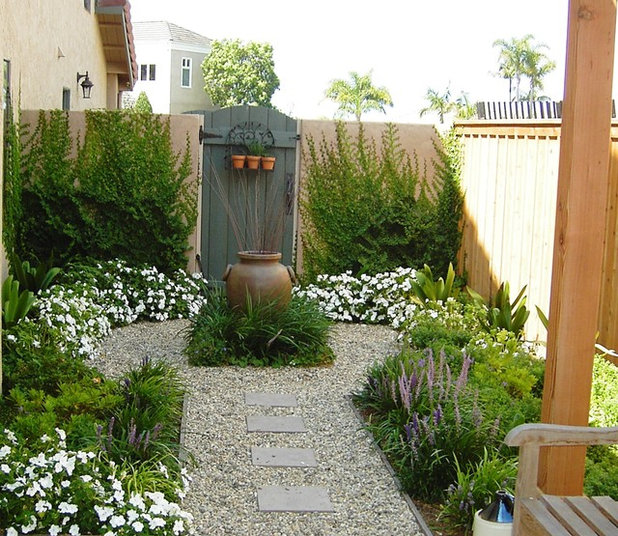
debora carl landscape design
Save Space With Upward GrowthPlants brighten up any boundary and make it a bit more interesting. If you don't have space for a hedge or wall shrub, climbers can be great space savers in a small garden — they climb vertically and won't protrude into the yard if you give them a little care and pruning. In this yard, a fast-growing free climber conserves space, and the planting now seems to flow from the beds to the top of the wall in one swift movement.
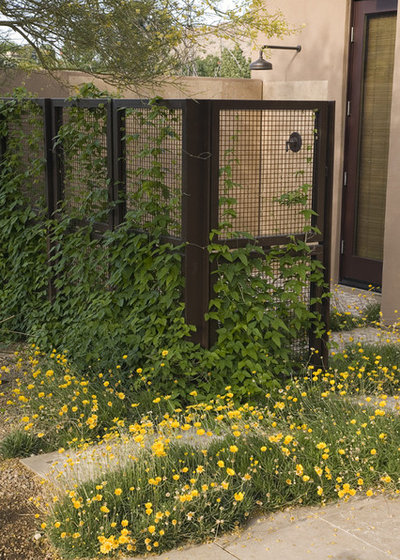
Carson Poetzl, Inc.
Cover a ScreenSome rampant climbers have a bad reputation, but used carefully and kept under control, they can be of great use as screening plants on suitable structures. The most rampant of these climbers in temperate climates is Russian Vine (
Fallopia baldschuanica), but even this can be treated almost as a topiary through constant trimming and shaping of its shoots. It also has beautiful racemes of pink-tinged white flowers held in abundance over the late summer.
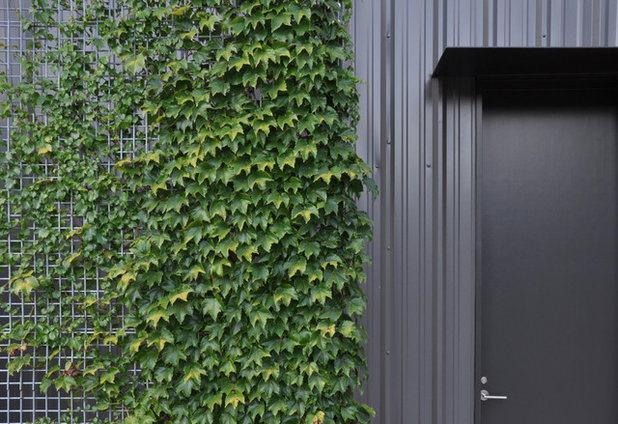
MICHAEL HENNESSEY ARCHITECTURE
Boston Ivy (
Parthenocissus tricuspidata), another vigorous climber,
is a perfect quick cover on a structure using a self-clinging climber. It is shown here in its green summer clothing, which makes an excellent background for paler plants, but its vinelike leaves give a dazzling autumn display of red and crimson.
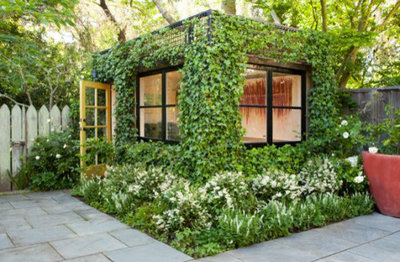
Scott Lewis Landscape Architecture
Mask Unsightly SurfacesClimbers can be a form of disguise, softening unattractive walls and camouflaging sheds, garages and outbuildings under a cloak of green.
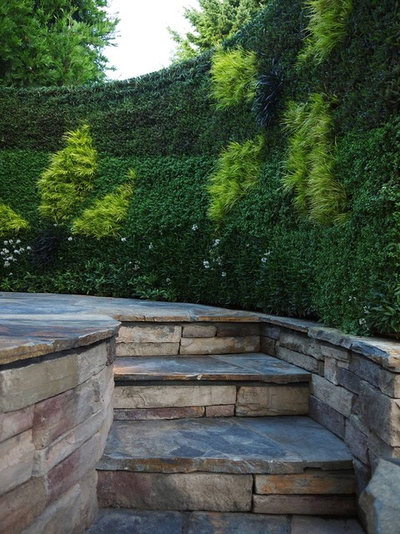
Bright Green
The sheer scope and diversity of climbing plants allows you to interpret your own individual style. The latest solution is to install a living wall. This wall was installed using a modular planting system supplied by Bright Green. Suitable plants are grown in cells of the Grovert Planter, which can be fixed to your wall using special brackets. Water either trickles down from the top planters or is dispersed via a drip-feed system.
More:11 Inspiring Vertical Gardens
Vertical Gardens Raise the Limits for Landscapes





